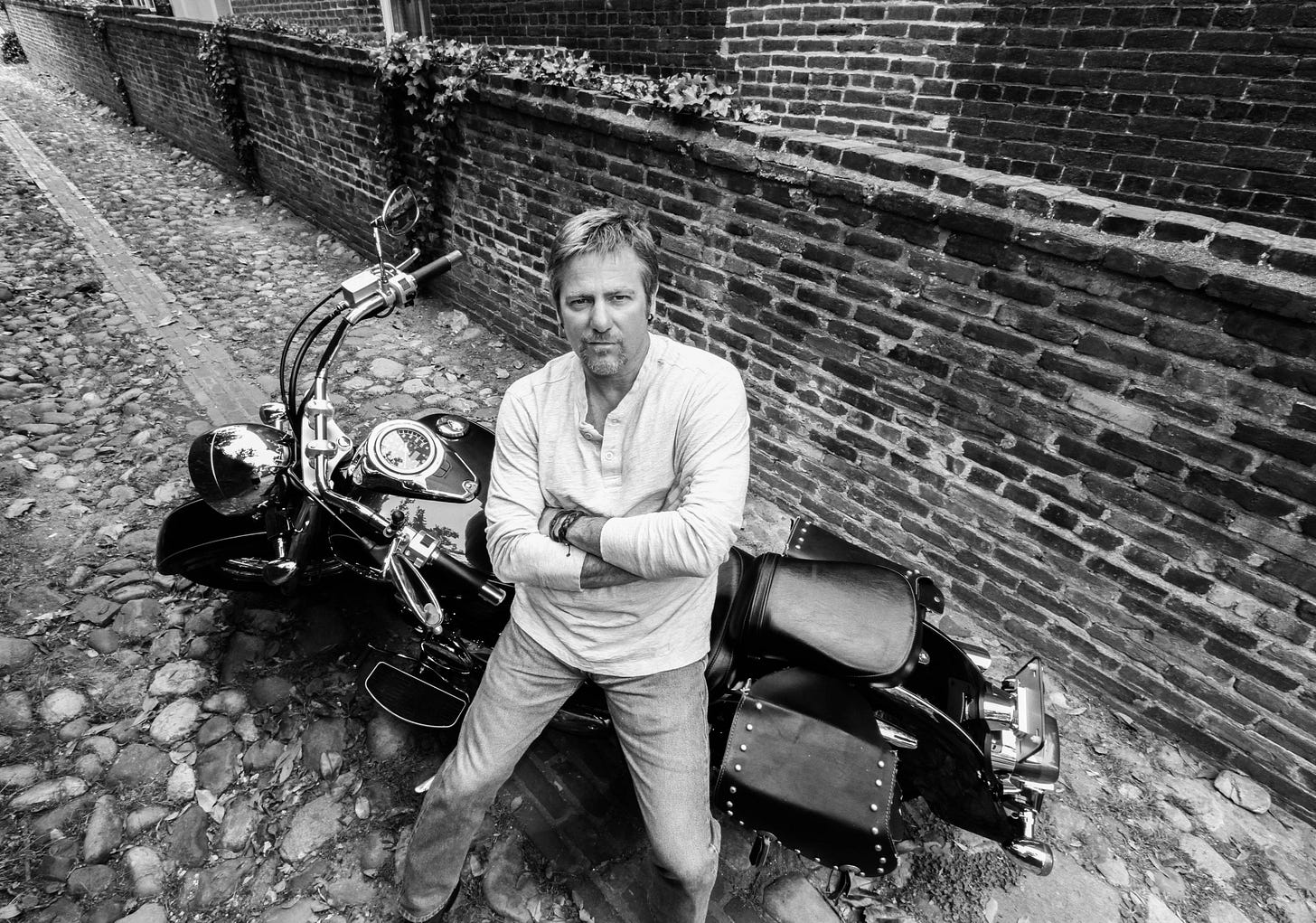SIX QUESTIONS WITH DAVID DRAYER
Just Can't Wait To Get On The Road Again
David Drayer is the author of the novels Strip Cuts, A Noble Story, Something Fierce, the novella, Attachment, and the autobiographical collection, Wayward Son: Travels and Reflections. Born and raised in the small town of Rimersburg, Pennsylvania, Drayer holds an MFA from the University of Iowa and has worked countless jobs, including stints as an adjunct English professor, ghostwriter, actor, and corporate trainer. Learn more about Drayer’s work at DavidDrayer.com.
(Note from Joshua: I’ve known and have been friends with David since graduate school, which we attended together, and we’ve remained in touch ever since. We acted in plays together, we shared writing with each other and a love of motorcycles. I was there when he had his first drink of alcohol at Coyote Ugly Saloon and stayed sober to keep him out of trouble. I also crashed on his couch on my first trip to Los Angeles to see a play of mine that was being staged there in the 90s… he’s a great writer and a great guy. I read an early draft of STRIP CUTS and was blown away by it. I highly recommend his work. Oh, and please subscribe to this newsletter on the button below. Thanks!)
1 - Which writer who came before, do you admire the most?
Raymond Carver. A working-class writer, he wrote about the people I grew up around and his struggles of trying to survive and write are all too familiar. For this reason, he never wrote a novel, but he perfected the short story. He effortless slips into and out of the lives of his characters and we truly know them. His characters are often people at the end of their rope, dreamers whose dreams will probably not come true, and he captures them with grace and wisdom, and often, humor. The irony of it all was never lost on Carver.
2 - Which teacher(s) had the most profound effect on you?
The late Chuck Kinder, whom I had as an undergraduate at the University of Pittsburgh. He was actually a good friend of Carver’s and I lit up when he told of their wild days together. He was a bad-ass, which I can’t help but like in a writer and a teacher. He didn’t pull any punches when he critiqued your work, but he had a way of telling you what was working and what was not that made you eager to rewrite, instead of dreading it as many young writers usually do. He was the first person who really knew writing to tell me, “You have what it takes.”
3 - Besides writing, what’s your favorite hobby or passion?
Hiking and open-ended motorcycle trips. I love going where the road takes me. Adventures abound. (Many of these are chronicled in my only non-fiction book, Wayward Son: Travels and Reflections.
4 - What is something that those who don’t write fiction do not know or understand about it?
A great literary fiction book can be more honest and true than a nonfiction one. Of course, you use bits and pieces from your own life and the lives around you, but you are not writing biography or autobiography. You are getting to the very heart of the human experience, without feeling the need to protect yourself or anyone else. You are not bound by timelines and dates and “what actually happened” in this situation or that one, and can therefore, combine a series of events to create a piece that transcends liner time and the little bit we see on the surface. Here, you can get a glimpse, a breath of what it means to be human.
5 - Can you think of a key breakthrough moment in your work, for you, that you’d be willing to share?
While writing my first book, Strip Cuts (a series of interlocking stories that tell the tale of a town), I wrote a story called “The Smell of Snow.” The story came so effortlessly that it felt like I was channeling an event rather than making it up. In my real life, I find it very difficult to cry. Perhaps because the world I was raised in was one in which men don’t cry. It’s a sign of weakness. Pure bullshit, but it’s hard for me to allow that release. During this story, I wept openly as I wrote it. I wasn’t crying because the story was sad. Something about that little story allowed me a peek into unbearable beauty of life underneath the hardness, the grit, and the seeming chaos. I felt so high after finishing that story. I knew this is what I was meant to do with my life. Since then, that has happened to me countless times while writing, even if I am writing something funny. In my everyday life, I seldom get that release.
6 - What’s next for you?
With Attachment being made into a movie, I am excited to revisit screenwriting. Movies were my first passion. I am in the market for an agent that has a solid footing in both books and film. Something Fierce, my second book, is such an intense, genre-surfing novel (character-driven, erotic, psychological thriller), it would make an excellent film.
But, too, I want to write a sequel to Strip Cuts. Blue-collar, working-class America needs to be heard from, but my God, so much has changed since I wrote Strip Cuts twenty years ago. These people have been manipulated and used politically. It breaks my heart. I know “you can’t go home again,” and I don’t want to, but I do want to tell their stories from their point of view, because it is a point of view that has become so foreign to me that I at least need to hear it, understand what they believe and why. I think all of America could benefit from seeing beyond their front porch.



